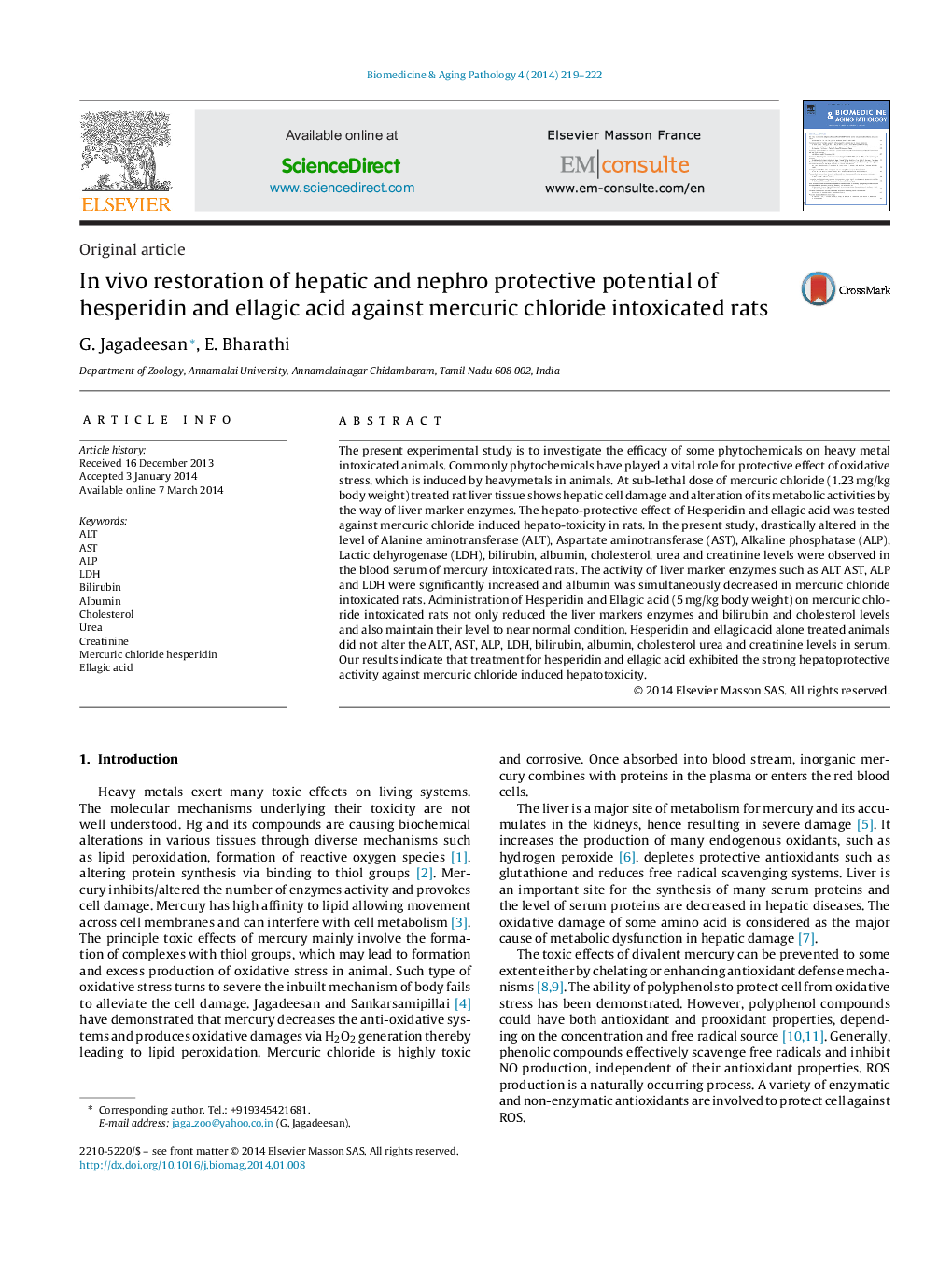| Article ID | Journal | Published Year | Pages | File Type |
|---|---|---|---|---|
| 2576213 | Biomedicine & Aging Pathology | 2014 | 4 Pages |
The present experimental study is to investigate the efficacy of some phytochemicals on heavy metal intoxicated animals. Commonly phytochemicals have played a vital role for protective effect of oxidative stress, which is induced by heavymetals in animals. At sub-lethal dose of mercuric chloride (1.23 mg/kg body weight) treated rat liver tissue shows hepatic cell damage and alteration of its metabolic activities by the way of liver marker enzymes. The hepato-protective effect of Hesperidin and ellagic acid was tested against mercuric chloride induced hepato-toxicity in rats. In the present study, drastically altered in the level of Alanine aminotransferase (ALT), Aspartate aminotransferase (AST), Alkaline phosphatase (ALP), Lactic dehyrogenase (LDH), bilirubin, albumin, cholesterol, urea and creatinine levels were observed in the blood serum of mercury intoxicated rats. The activity of liver marker enzymes such as ALT AST, ALP and LDH were significantly increased and albumin was simultaneously decreased in mercuric chloride intoxicated rats. Administration of Hesperidin and Ellagic acid (5 mg/kg body weight) on mercuric chloride intoxicated rats not only reduced the liver markers enzymes and bilirubin and cholesterol levels and also maintain their level to near normal condition. Hesperidin and ellagic acid alone treated animals did not alter the ALT, AST, ALP, LDH, bilirubin, albumin, cholesterol urea and creatinine levels in serum. Our results indicate that treatment for hesperidin and ellagic acid exhibited the strong hepatoprotective activity against mercuric chloride induced hepatotoxicity.
